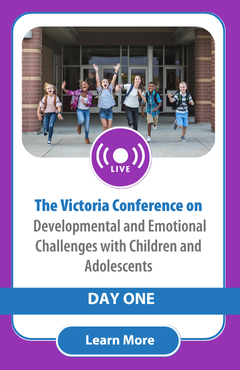Description
LIVE STREAM: October 22 – 23, 2025 from 8:30am – 4:00pm (Regina, SK) Please adjust your start time according to your specific time zone.
ON-DEMAND: Recorded footage & course content (certificate, videos, quiz) will be available until November 28, 2025. Please allow 3 – 10 business days for footage to be processed. Extensions cannot be granted under any circumstances.
Executive skills—often referred to as “the hidden curriculum”—are critical cognitive abilities that underpin academic success. These include skills like task initiation, sustained attention, working memory, planning, organization, and goal-directed persistence. While these skills are essential for students to thrive in school, they are rarely explicitly addressed in standard curriculum frameworks.
Research shows that executive skills continue to develop well into early adulthood, and their growth can be influenced by factors such as experience, environment, and direct instruction. It is essential for educators to recognize the role these skills play in learning and to adopt strategies that promote their development in students.
This interactive 2-day workshop offers educators, school psychologists, special education teachers, and other professionals working with children and adolescents, a comprehensive understanding of executive skills and provides practical, evidence-based strategies to support their development. Participants will learn how to embed executive skills into daily routines, create a supportive environment, and design targeted interventions for children, adolescents and young adults who struggle with executive function challenges.
Day 1: Understanding and Assessing Executive Skills
Morning Session: Foundations of Executive Skills
- Overview of Executive Skills: Introduction to the cognitive functions necessary for task management, such as working memory, emotional regulation, task initiation, and impulse control.
- Developmental Progression: Learn how executive skills evolve from infancy through adolescence and the factors that impact this progression, including neurological development and environmental influences.
- Executive Skills and Brain Function: Understand the neuropsychological basis for executive skills and how disruptions in these processes can lead to executive dysfunction.
- Self-Assessment: Participants will complete a personal executive skills self-assessment to identify their strengths and areas for growth.
Key Activities:
- Group discussions on the developmental trajectory of executive skills.
- Case studies to explore how deficits in executive function manifest differently.
Afternoon Session: Assessment and Environmental Modifications
- Assessing Executive Skills: Learn how to identify executive skill deficits through formal assessments, behavior rating scales, and teacher/parent/student interviews.
- Modifying the Environment: Discover strategies for adapting the home and classroom environment to support students with executive dysfunction. This includes environmental changes, task modifications, and adjusting adult interactions to promote success.
Key Activities:
- Brainstorming session to design classroom and home-based environmental modifications that support children, adolescents and young adults with weak executive skills.
Day 2: Interventions and Coaching for Executive Skill Development
Morning Session: Embedding Executive Skills in Daily Routines
- Teaching Through Routine: Learn how to integrate executive skill development into daily activities, such as homework planning, organization, and emotional regulation.
- Classroom Routines: Discover how to design daily classroom routines that foster executive skills, including teaching students how to plan, prioritize, and manage tasks effectively.
Key Activities:
- Group activity to design a home or classroom routine that incorporates one or more executive skills.
Afternoon Session: Designing Student-Centered Interventions
- Tailored Interventions: Learn how to create individualized interventions based on student needs, with a focus on addressing specific executive skill challenges in different contexts.
- Incentives and Motivation: Explore how to use incentives and reward systems to encourage the development and practice of executive skills.
Key Activities:
- Using case studies, participants will practice designing student-centered interventions.
- Discussion of incentives and their role in promoting executive skills practice.
Final Session: Coaching for Success
- Introduction to Coaching: Understand the fundamentals of coaching as a tool for enhancing executive function in students. Learn about the two-stage coaching process and how to coach students to build their executive skills.
- Coaching Techniques: Explore specific coaching strategies for improving task management, impulse control, and social interactions. Review real-world examples and research supporting the effectiveness of coaching.
Key Activities:
- Role-playing exercise to practice coaching techniques in small groups.
- Discussion of coaching methods and their application in different educational settings.
The workshop will introduce the Feifer Assessment of Writing (FAW), a tool designed to diagnose writing disorders and guide intervention planning. Participants will explore how to use the FAW and other diagnostic instruments to identify students with written language difficulties, ensuring they receive the appropriate interventions.






